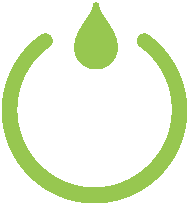creating a ‘nutrition vision’ that works
Chances are that if you follow my work, there’s a part of you that is interested in your nutrition.
You’re likely in a senior leadership role, a CEO, business owner, or entrepreneur, who is struggle with fatigue, and wishes they could regain some of the energy they had when they were younger, fitter, and less overwhelmed by responsibilities.
It’s also likely you’re great at having a vision for your company or business, but when’s the last time you actually sat down to write a clear vision of your nutrition goals? Where you want to take your nutrition in the future, what your big-picture goals are for your nutrition?
The problem is that 'New Years Resolutions' are no longer a priority by mid-year, as other life and career priorities creep back in again and take up your limited time.
This may happen because you have not set a strong, clear ‘nutrition vision’. This vision is your compass, it navigates you towards reaching your desired wellbeing goals and outcomes.
Your ‘nutrition vision’ helps you determine what goals you want to set with your fitness, your body composition, food behaviours and advancing your health.
Without this vision, you’re prone to feeling overwhelmed about where to start with your health journey, leading to emotional eating and poor food choices. This confusion often results in a cycle of stress and low energy, making it even harder to reach your health and fitness goals, let alone establish fueling habits!
You're a high performer who feels like you must perform as well as a professional athlete - but without any of the added support! Truth is, you need the same level of guidance to navigate these challenges.
Creating a 'Nutrition Vision' as a high performer involves setting clear, actionable goals that align with your overall lifestyle and professional objectives. Here’s a guide to help you create a powerful ‘Nutrition Vision’:
Step 1: Define Your Why
Identify Core Motivations: Reflect on why nutrition is important to you. Are you aiming for more energy, better focus, improved performance, or overall health? Clearly define your motivations and how they relate to your personal and professional life.
Set Long-Term Goals: Consider how improved nutrition can support your long-term career and lifestyle aspirations. This could include enhancing cognitive function, increasing physical endurance, or achieving a specific fitness milestone.
Step 2: Assess Your Current Nutrition Habits
Conduct a Nutrition Audit: Evaluate your current eating habits, identifying strengths and areas for improvement. Consider factors like meal timing, food quality, portion sizes, and variety.
Identify Barriers: Recognize any obstacles that prevent you from maintaining optimal nutrition, such as time constraints, lack of access to healthy foods, or emotional eating patterns.
Step 3: Establish Clear Nutrition Goals
Set SMART Goals: Make your nutrition goals Specific, Measurable, Achievable, Relevant, and Time-bound. For example, aim to eat five servings of vegetables daily or to reduce processed sugar intake by 50% over the next month.
Prioritize Goals: Rank your goals based on their impact and feasibility. Focus on the most significant changes that will drive your performance and health forward.
Step 4: Design Your Nutrition Strategy
Plan Your Meals: Create a meal plan that aligns with your goals and fits into your lifestyle. Include a balance of macronutrients (proteins, fats, and carbohydrates) and micronutrients (vitamins and minerals) to fuel your body effectively.
Incorporate Flexibility: Allow for flexibility in your plan to accommodate changes in schedule or preferences. This adaptability helps maintain consistency without feeling restrictive.
Step 5: Implement and Monitor Progress
Track Your Intake: Use a food diary or app to track your meals and monitor your progress. This can help identify patterns and areas where adjustments are needed.
Adjust as Needed: Regularly assess your progress and make necessary adjustments to your strategy. Stay open to experimentation to find what works best for you.
Step 6: Stay Motivated and Accountable
Find Support: Engage with a nutritionist, join a community of like-minded individuals, partner with a friend to stay motivated and accountable.
Celebrate Milestones: Acknowledge and celebrate your achievements along the way, no matter how small. This helps maintain motivation and reinforces positive habits.
Step 7: Integrate Nutrition with Your Lifestyle
Align with Professional Goals: Ensure your nutrition plan supports your professional objectives by enhancing energy levels, cognitive function, and overall well-being.
Adapt to Lifestyle Changes: As your career and lifestyle evolve, revisit and adapt your nutrition vision to ensure it continues to meet your needs.
Using the above steps as a guide, you can create a nutrition vision that not only supports your health but also empowers you to excel as a high performer.
To help you create a vision for yourself, I have also put together a short list of resources to inspire you.
How High Achievers can manage their nutrition too win in life and in business
What to do when you feel disconnected from your nutrition routine
Why 'cheat meals' won't work for you
Timing your meals. How this can increase & maintain energy levels.
Integrating Nutrition into your lifestyle
FREE Masterclass- will prompt you to reconsider how you time what you eat, what you eat and why you're eating it! All geared towards helping you master your energy levels and elevate your performance.
Consider how much time you can realistically devote to becoming the best version of yourself by the end of the year. Do you think you can achieve that on your own, or could you use some expert support?
What does your NUTRITION VISION look like for you?


